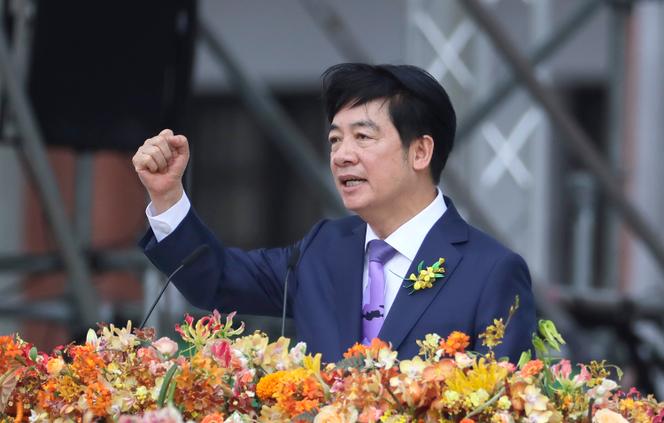


The two terms of Taiwan's outgoing president Tsai Ing-wen (2016-2024) were full of tension with China, but that could be nothing compared to that of her successor Lai Ching-te, who was officially inaugurated on Monday, May 20. On the other side of the Strait, Chinese President Xi Jinping has promised to politically link the island to the mainland by peaceful means if possible, but by force if necessary. Constantly repeated, this ambition creates a kind of obligation to action.
The obsession dates back to the end of the Chinese Civil War (1927-1949) and the founding of the People's Republic of China (PRC) in 1949. Defeated, General Chiang Kai-shek's withdrawal to Taiwan gave rise to the coexistence of two entities claiming to govern China: the Republic of China (ROC, Taiwan) and the mainland's PRC. This aspiration is therefore not just geographical, but also political and historical: Communist China was built around the need to close this chapter, the original blemish on the Chinese Communist Party's seizure of power, which was not complete.
According to Xi, this historic mission "cannot be passed down from generation to generation." It is a central element of the great Chinese "renewal" that justified the lifting of the two-term presidential limit in 2018. How, then, could an all-powerful president spend three, and probably even four, terms in power (a total of 20 years), without any concrete results on the issue presented to the Chinese as the most decisive? For the Taiwanese, this is a worrying thought.
Hence the "Davidson window" timeline. Before stepping down in 2021, Philip Davidson, the admiral of the United States Indo-Pacific Command, told US Congress that "the threat is manifest during this decade, in fact in the next six years," considering that China wanted to have the military capability to invade the island by 2027. His successor also reiterated this date. However, according to American media, notably NBC, Xi told US President Joe Biden during their November 2023 meeting in San Francisco that while China intends to take Taiwan, the political option is still preferred to the military one, and that timing has not yet been set.
Much depends on Xi's assessment of the risk. His career has convinced him that a bold maneuver can be successful when facing the West, which prefers comfort to conflict, and that it is necessary to assume the cost of one's political objectives. As soon as he came to power in autumn 2012, China built artificial islands on disputed islets in the South China Sea, sent an estimated one million Uighurs to internment camps from 2016 onwards, and implemented mainland methods to silence dissent in Hong Kong in 2020. Despite this escalation of repression, China's share of global manufacturing output rose from 20% to 30% between 2012 and 2021.
You have 50.53% of this article left to read. The rest is for subscribers only.
